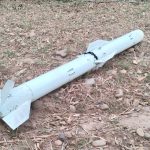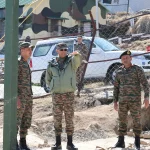In a dramatic escalation of border hostilities, India has reported a massive infiltration attempt by Pakistan involving approximately more than 500 drones across 24 strategic points along the western border. The incursions, which occurred during the night of May 7 and 8, also included heavy weapons fire across the Line of Control (LoC), signaling heightened military confrontation.
Colonel Sofiya Qureshi of the Indian Army confirmed in a press briefing that these drones, many of which were neutralized using both kinetic (weapon-based) and non-kinetic (electronic warfare) measures, were likely intended to test India’s air defense capabilities and conduct surveillance. Preliminary forensic analysis has identified the downed UAVs as Songar drones—a Turkish-origin model developed by Asisguard, capable of real-time image transmission, threat engagement, and intelligence gathering.
This aggressive move follows India’s recent Operation Sindoor, a targeted military campaign against terrorist hideouts in Pakistan and Pakistan-occupied Kashmir (PoK), initiated in response to a series of cross-border attacks. Military analysts view the drone offensive as a potential retaliatory maneuver or psychological operation designed to probe Indian response protocols.
The discovery of Turkish-made drones adds a complex international layer to the ongoing India-Pakistan tensions. Questions have arisen regarding the nature of Pakistan’s defense procurements and foreign support. India has signaled its intent to raise the issue diplomatically, even as the border situation remains volatile.
With both nations maintaining nuclear capabilities and a history of military confrontations, the international community has expressed deep concern. Analysts warn that such incidents could quickly spiral into a broader conflict if not managed with restraint and dialogue.
India continues to remain on high alert, reinforcing its surveillance and counter-drone infrastructure, while reiterating its commitment to national security and regional peace.













